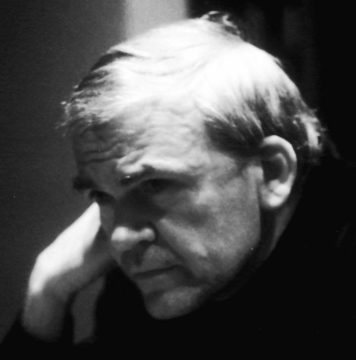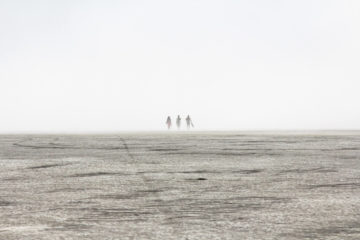Small Blue Thing
Today I am
A small blue thing
Like a marble
Or an eye
With my knees against my mouth
I am perfectly round
I am watching you
I am cold against your skin
You are perfectly reflected
I am lost inside your pocket
I am lost against
Your fingers
I am falling down the stairs
I am skipping on the sidewalk
I am thrown against the sky
I am raining down in pieces
I am scattering like light
Scattering like light
Scattering like light
Today I am
A small blue thing
Made of china
Made of glass
I am cool and smooth and curious
I never blink
I am turning in your hand
Turning in your hand
Small blue thing
Susan Vega
from her Album: Susan Vega

 One afternoon in early 2017, at Facebook’s headquarters in Menlo Park, Calif., an engineer named Tommer Leyvand sat in a conference room with a smartphone standing on the brim of his baseball cap. Rubber bands helped anchor it in place with the camera facing out. The absurd hat-phone, a particularly uncool version of the future, contained a secret tool known only to a small group of employees. What it could do was remarkable. The handful of men in the room were laughing and speaking over one another in excitement, as captured in a video taken that day, until one of them asked for quiet. The room went silent; the demo was underway.
One afternoon in early 2017, at Facebook’s headquarters in Menlo Park, Calif., an engineer named Tommer Leyvand sat in a conference room with a smartphone standing on the brim of his baseball cap. Rubber bands helped anchor it in place with the camera facing out. The absurd hat-phone, a particularly uncool version of the future, contained a secret tool known only to a small group of employees. What it could do was remarkable. The handful of men in the room were laughing and speaking over one another in excitement, as captured in a video taken that day, until one of them asked for quiet. The room went silent; the demo was underway. I
I Four decades after it was filmed, “Stop Making Sense,” the Talking Heads concert documentary, is still ecstatic and strange. “It stays kind of relevant, even though it doesn’t make literal sense,” David Byrne, the band’s leader and singer, said in a recent interview.
Four decades after it was filmed, “Stop Making Sense,” the Talking Heads concert documentary, is still ecstatic and strange. “It stays kind of relevant, even though it doesn’t make literal sense,” David Byrne, the band’s leader and singer, said in a recent interview. Milan Kundera, the Czech writer who died earlier this summer aged 94, represented a number of things, but they were all variations – to borrow one of his own favourite words – on the theme of freedom. To the Western readership which embraced his work perhaps as eagerly as that of any non-Anglophone writer during the final quarter of the twentieth century (Marquez was the obvious competitor) he seemed to offer a distinctive, unorthodox and unassailably authoritative approach to novelistic form, literary history and the sanctity of private life. But no less important to Kundera’s project and legacy were the liberties he took, the freedoms he granted himself – from responsibility and rigour, from his obligations to coherence and even reality.
Milan Kundera, the Czech writer who died earlier this summer aged 94, represented a number of things, but they were all variations – to borrow one of his own favourite words – on the theme of freedom. To the Western readership which embraced his work perhaps as eagerly as that of any non-Anglophone writer during the final quarter of the twentieth century (Marquez was the obvious competitor) he seemed to offer a distinctive, unorthodox and unassailably authoritative approach to novelistic form, literary history and the sanctity of private life. But no less important to Kundera’s project and legacy were the liberties he took, the freedoms he granted himself – from responsibility and rigour, from his obligations to coherence and even reality. Researchers, guided by the Moral Foundations Theory (MFT), explored the neural basis of morality. They discovered that while a general brain network is involved in judging moral violations, distinct activity patterns arise for different moral issues, supporting a pluralistic view.
Researchers, guided by the Moral Foundations Theory (MFT), explored the neural basis of morality. They discovered that while a general brain network is involved in judging moral violations, distinct activity patterns arise for different moral issues, supporting a pluralistic view.
 IN 2023, THE ATTENDEES
IN 2023, THE ATTENDEES
 Remo Verdickt and Emiel Roothooft in LA Review of Books:
Remo Verdickt and Emiel Roothooft in LA Review of Books: